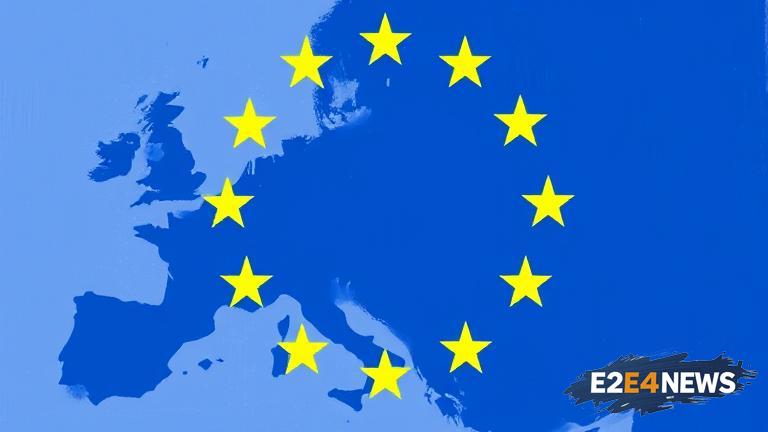The European Union is at a critical juncture, with its competitiveness being put to the test by a myriad of global challenges. The COVID-19 pandemic has had a profound impact on the EU’s economy, with many member states struggling to recover from the devastating effects of the crisis. Furthermore, the EU is facing increasing competition from other regions, including Asia and the Americas, which are rapidly emerging as major economic powerhouses. In order to remain competitive, the EU must take bold action to enhance its economic resilience and attractiveness to investors. This can be achieved through a range of measures, including investing in cutting-edge technologies, such as artificial intelligence and renewable energy, and implementing policies that promote innovation and entrepreneurship. Additionally, the EU must work to reduce bureaucratic barriers and streamline its regulatory framework, making it easier for businesses to operate and thrive within the single market. The EU’s competitiveness is also closely tied to its ability to attract and retain top talent, with many of the continent’s most skilled workers being lured away by other regions. To address this challenge, the EU must develop a more comprehensive and inclusive immigration policy, one that allows for the free movement of people and ideas. Moreover, the EU must prioritize education and training, ensuring that its workforce is equipped with the skills and knowledge necessary to compete in an increasingly complex and interconnected world. The EU’s competitiveness is also closely linked to its trade relationships, with the bloc’s ability to negotiate and implement effective trade agreements being crucial to its economic success. In recent years, the EU has made significant progress in this area, negotiating major trade deals with countries such as Japan and Canada. However, more work needs to be done to strengthen the EU’s trade relationships, particularly with emerging economies in Asia and Africa. The EU must also work to promote greater economic integration and cooperation among its member states, with the development of a more comprehensive and integrated single market being a key priority. This can be achieved through the implementation of policies that promote the free movement of goods, services, and capital, as well as the development of a more robust and resilient financial system. Furthermore, the EU must prioritize sustainability and environmental protection, with the development of a more circular and low-carbon economy being essential to its long-term competitiveness. The EU’s competitiveness is also closely tied to its ability to promote and protect its strategic interests, with the bloc’s foreign and security policy playing a critical role in shaping its economic relationships with other regions. In order to enhance its competitiveness, the EU must develop a more comprehensive and integrated foreign policy, one that allows it to project its influence and protect its interests in an increasingly complex and uncertain world. The EU’s competitiveness is a complex and multifaceted issue, with a range of factors contributing to its economic resilience and attractiveness. However, by taking bold action to enhance its competitiveness, the EU can remain a major economic powerhouse and continue to promote peace, prosperity, and stability in an increasingly interconnected world. The EU’s ability to compete with other regions will depend on its ability to innovate and adapt to changing global circumstances. The EU must prioritize research and development, investing in cutting-edge technologies and promoting a culture of innovation and entrepreneurship. The EU’s competitiveness is also closely tied to its ability to promote and protect its cultural and linguistic diversity, with the bloc’s rich cultural heritage being a major source of strength and inspiration. In order to enhance its competitiveness, the EU must develop a more comprehensive and inclusive cultural policy, one that promotes and celebrates the diversity of its member states and regions. The EU’s competitiveness is a critical issue, with the bloc’s economic resilience and attractiveness having a major impact on the lives of its citizens. By taking bold action to enhance its competitiveness, the EU can promote peace, prosperity, and stability, and remain a major economic powerhouse in an increasingly interconnected world.
